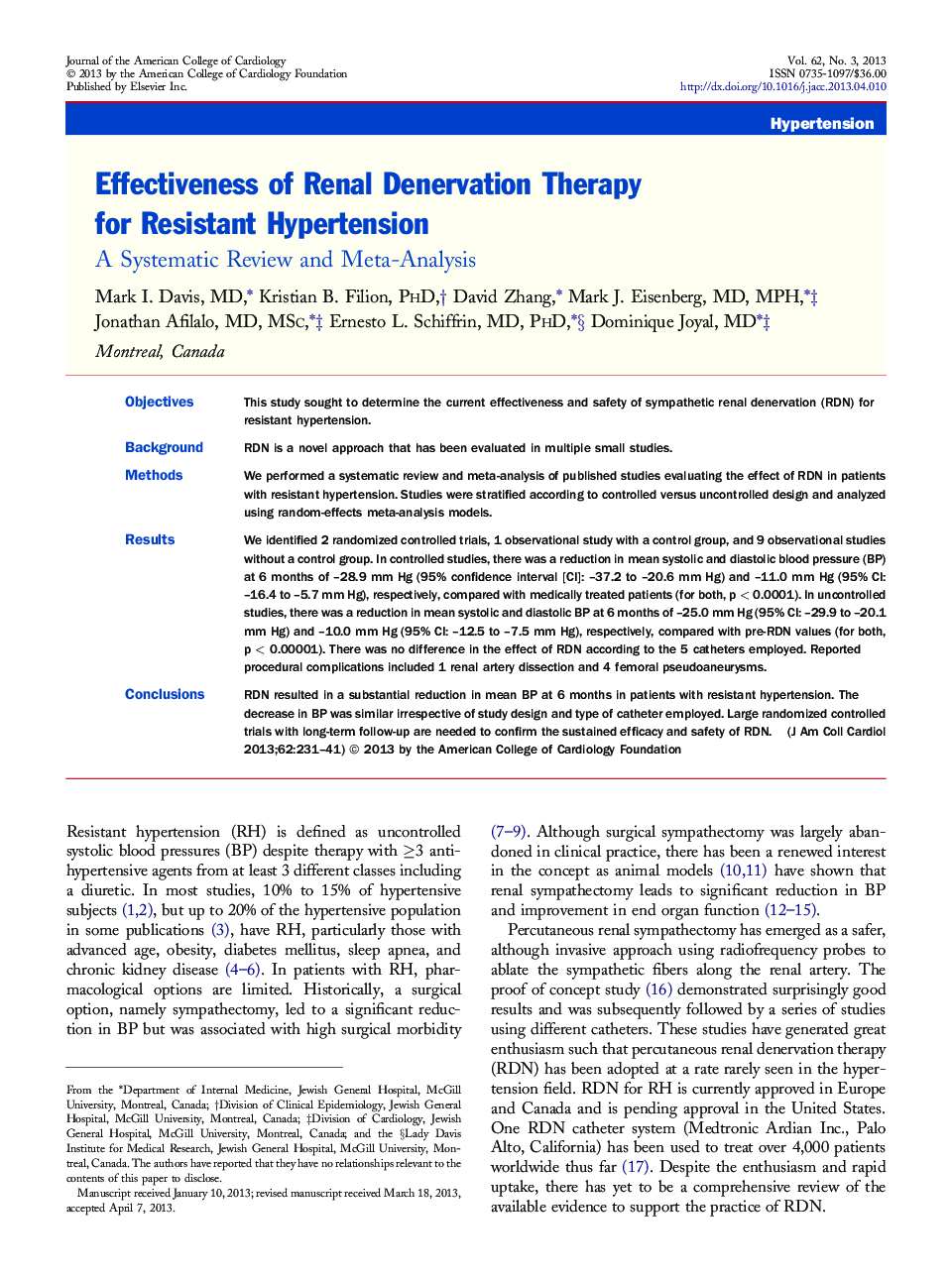| Article ID | Journal | Published Year | Pages | File Type |
|---|---|---|---|---|
| 5983460 | Journal of the American College of Cardiology | 2013 | 11 Pages |
ObjectivesThis study sought to determine the current effectiveness and safety of sympathetic renal denervation (RDN) for resistant hypertension.BackgroundRDN is a novel approach that has been evaluated in multiple small studies.MethodsWe performed a systematic review and meta-analysis of published studies evaluating the effect of RDN in patients with resistant hypertension. Studies were stratified according to controlled versus uncontrolled design and analyzed using random-effects meta-analysis models.ResultsWe identified 2 randomized controlled trials, 1 observational study with a control group, and 9 observational studies without a control group. In controlled studies, there was a reduction in mean systolic and diastolic blood pressure (BP) at 6 months of -28.9 mm Hg (95% confidence interval [CI]: -37.2 to -20.6 mm Hg) and -11.0 mm Hg (95% CI: -16.4 to -5.7 mm Hg), respectively, compared with medically treated patients (for both, p < 0.0001). In uncontrolled studies, there was a reduction in mean systolic and diastolic BP at 6 months of -25.0 mm Hg (95% CI: -29.9 to -20.1 mm Hg) and -10.0 mm Hg (95% CI: -12.5 to -7.5 mm Hg), respectively, compared with pre-RDN values (for both, p < 0.00001). There was no difference in the effect of RDN according to the 5 catheters employed. Reported procedural complications included 1 renal artery dissection and 4 femoral pseudoaneurysms.ConclusionsRDN resulted in a substantial reduction in mean BP at 6 months in patients with resistant hypertension. The decrease in BP was similar irrespective of study design and type of catheter employed. Large randomized controlled trials with long-term follow-up are needed to confirm the sustained efficacy and safety of RDN.
